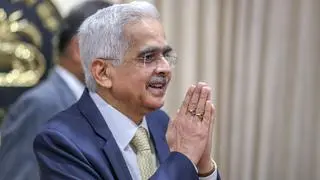The Union Cabinet is likely to consider Constitutional Amendment Bill for Goods & Services Tax (GST) on Wednesday. The Government aims to introduce the Bill in the ongoing session of Parliament.
The Bill, once, approved by Parliament, will need the nod from at least 50 per cent State Assemblies. Following this, the Centre will bring a separate legislation for introduction of new indirect tax reforms while States will have to present separate legislation in their Assemblies. The Centre aims to introduce GST from April 1, 2016. The new tax system will subsume various indirect taxes such as Central Excise, Sales Tax/Value Added Tax etc.
The Central Government is going for legislative exercise after positive outcome in meetings with States on Monday. Sources said that States’ demand for making a provision of compensation for initial years on account of revenue loss due to introduction of GST in legislation has been accepted by the Centre. At the same time, there is also agreement on subsuming entry tax into GST. Finance Minister Arun Jaitley has already promised to pay ₹11,000 crore as compensation due to phasing out of Central Sales Tax.
Sources also said that considering the States’ concern on petroleum product, there is plan to make a provision in the Constitution Amendment Bill for keeping petroleum product within GST with ‘nil’ rate for first three years. Then, a decision will be taken to continue with inclusion or keeping out from GST. Provision of ‘nil’ rate would enable Centre and States to levy taxes on petroleum products. Petroleum product comprises nearly 50 per cent of total revenue of States and they do not want to loose this important source.
GST was originally planned to be introduced from April 1, 2010 but lack of political consensus forced it to defer again and again. In fact, previous Government did introduce Constitution Amendment Bill during 15{+t}{+h} Lok Sabha which was also vetted by the Standing Committee on Finance. However, it could not manage to get the Bill passed and finally it lapsed with the dissolution of the previous Lok Sabha.
Now, Government sources hope that there might not be a need for the Bill to be sent back to the Standing Committee. Still, if the Opposition parties insist, then there will be enough time for the committee to examine it before consideration and passage of the Bill during the Budget session.






Comments
Comments have to be in English, and in full sentences. They cannot be abusive or personal. Please abide by our community guidelines for posting your comments.
We have migrated to a new commenting platform. If you are already a registered user of TheHindu Businessline and logged in, you may continue to engage with our articles. If you do not have an account please register and login to post comments. Users can access their older comments by logging into their accounts on Vuukle.